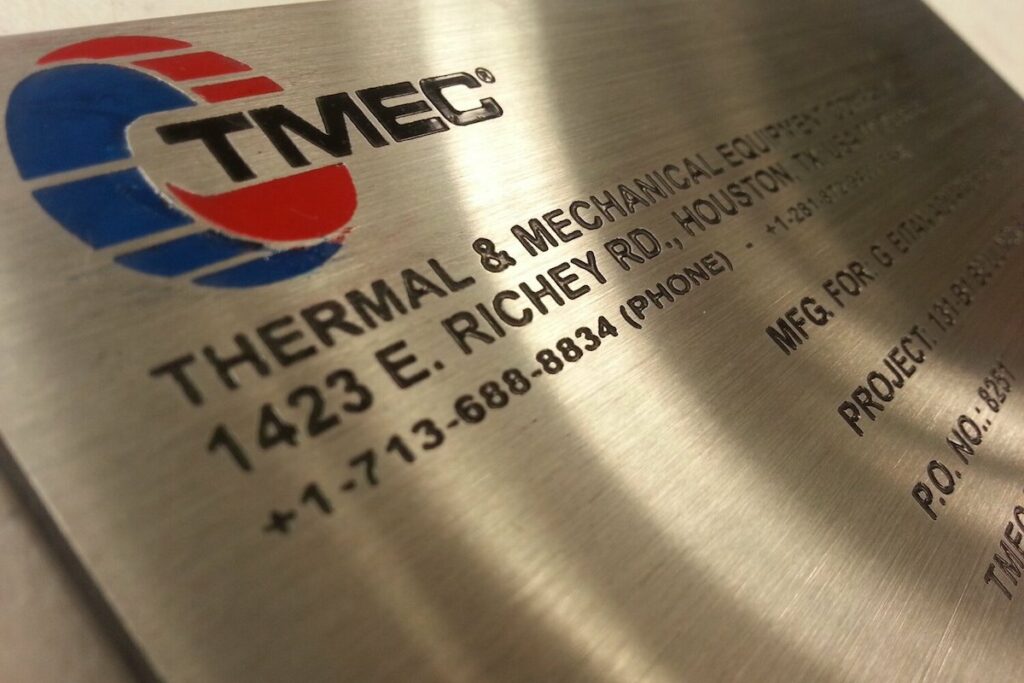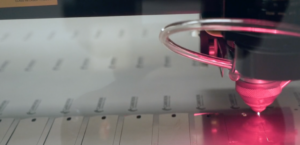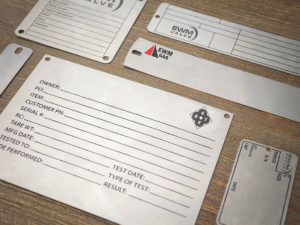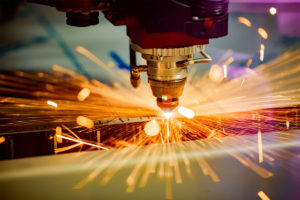
At Etched, we have decades of experience in a variety of marking types to create custom, readable, and durable industrial tags and nameplates. One of our most effective processing types is chemical etching, which is commonly used for applications that will undergo harsh or corrosive conditions.
In this blog post, our experts explain how chemical etching works and why you might specify it for your custom tags and plates.
What is chemical etching?
Chemical etching is a process that involves masking certain areas of substrate with an acid resistant material. The unmasked area is then dissolved with acid, leaving the masked areas in relief.
We use a chemical spray to remove the unmasked areas of substrate. Our etching machine heats the solution and sprays it, dissolving the unprotected metal atom by atom to create the desired graphics.
How deep is chemical etching?
Etched areas can be anywhere from 0.0015 to 0.003 inches deep, depending on the design and the material used. Deeper etching results in longer-term readability, although any application of chemical etching will last a long time even in harsh industrial environments. For enhanced legibility, we can fill the etched grooves with color.
What are the benefits of chemical etching?
Chemical etching is both more efficient and longer-lasting than most other production processes. Specific benefits include:
- Design flexibility: Chemical etching offers the flexibility to create any text or images you want on your custom industrial tags and nameplates.
- No mechanical distress: The etching process leaves the material stress free, with no changes to its structure or magnetic properties.
- Repeatable: The chemical etching process is efficient for high-volume production.
- Durability: Chemical etching is one of the most durable process types. Your industrial tags or plates will last for years, even in outdoor, corrosive, or severe-weather conditions.
What substrates support chemical etching?
Chemical etching is a popular choice for stainless steel, aluminum, or anodized aluminum tags and plates. It cannot be applied to plastic substrates.
Applications for chemical etching
Industrial tags
Tags are often installed in harsh environments, and need to remain clearly legible over time. Chemical etching can be combined with metal tags for equipment labeling, asset management, facility organization, and other essential applications.
Industrial nameplates
Use chemical etching to communicate complex or variable data on your industrial nameplates. Opt for high-quality stainless steel or aluminum nameplates that will resist corrosion.
Control panels
Clearly readable control panels are essential for communicating operating and safety instructions to workers. Chemical etching is highly precise, allowing for intricate operational diagrams or small text.
Want to learn more?
For questions about chemical etching or any of our other industrial tag and nameplate process options, contact our experts!



